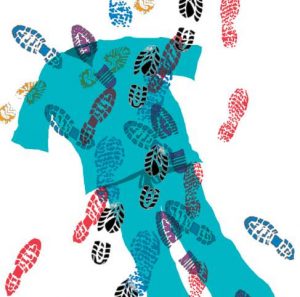NJSNA: Bullying Makes Everyone Sick
 The New Jersey State Nurses Association (NJSNA) wants employers to treat nurse incivility and bullying as a safety issue with a zero-tolerance policy and cultivate a workplace culture in which nurses feel comfortable reporting disruptive behaviors. Nurse leaders have to stress the importance of working as a team by promoting collaboration among staff members and asking senior staff to share their knowledge and mentor new nurses.
The New Jersey State Nurses Association (NJSNA) wants employers to treat nurse incivility and bullying as a safety issue with a zero-tolerance policy and cultivate a workplace culture in which nurses feel comfortable reporting disruptive behaviors. Nurse leaders have to stress the importance of working as a team by promoting collaboration among staff members and asking senior staff to share their knowledge and mentor new nurses.
We nurses also have to take responsibility for ourselves and our actions to counter incivility and bullying in our workplaces. If you’re being bullied, address the behavior immediately. Handle it with a direct conversation early on before it escalates into a bigger issue. Use conflict-management strategies when confronting a bully. Raise the issue at staff meetings. And if the disruptive behavior continues, bring it up the chain of command.
Acting on our belief that verbal and physical acts of aggression are entirely unacceptable in nursing, NJSNA seeks to protect nurses from all types of workplace conflict through various methods including education, advocacy and policy. We are working with the American Organization for Nursing Leadership and the New Jersey Hospital Association to give hospitals the tools they need to tackle this problem that continues to run rampant in our profession.
We also collated a series of resources that can help you and your colleagues reduce incidents in your workplace:
- ANA Position Statement on Incivility, Bullying and Workplace Violence
- ANA Conflict Engagement Information
- The Journal of Nursing’s Nurse Bullying: Organizational Considerations in the Maintenance and Perpetration of Health Care Bullying Cultures
- The Journal of Nursing’s Workplace Bullying: Concerns for Nurse Leaders
- American Nurse’s Break the Bullying Cycle
- Academy of Medical-Surgical Nurses’ Workplace Bullying and Lateral Violence Among Nurses
Eradicating incivility and bullying in nursing will take a united effort. Together we can create safe work environments for all nurses through education and commitment to change.
Statistically Speaking: Incivility Has No Place in Nursing
Incivility and bullying have no place in nursing, yet they pervade our profession. The dichotomy in nursing is that it is widely recognized as the most trusted occupation regarding honesty and ethical standards—and simultaneously referred to as a profession in which we eat our young.
One study showed that during a six-month period, 78% of students experienced bullying in nursing school. In another study, more than half of nursing students reported seeing or experiencing nurse-on-nurse bullying during their clinical rotations.
While we are all well aware that nurse incivility and bullying can adversely affect patient safety and care, we pay less attention to the fact that disruptive behaviors in our work environments contribute to nurse burnout and low morale, which ultimately affect retention.
According to a 2018 study in the Journal of Occupational and Environmental Medicine, workplace bullying increases employees’ psychological distress and intent to leave their job—even for workers who aren’t personally being bullied.
Disruptive behaviors among nurses have become so systemic that the American Nurses Association (ANA) created a policy in 2015 in an attempt to reduce them. Key points of the ANA position statement include:
- The nursing profession will not tolerate violence of any kind
- Nurses and leadership must work together to create a culture of respect
- Workplaces must adopt evidence-based strategies to prevent and mitigate incivility, bullying and workplace violence
Additionally, The Joint Commission issued a standard that requires health care organizations to define acceptable and disruptive behaviors in their codes of conduct and to have a process in place to manage both behaviors.




